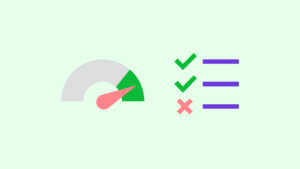Why do we need to know our business´ sustainability performance?
The fashion industry has become the second most polluting industry in the world, second to oil. Sustainable entrepreneurs and designers from the fashion and textile sector around the world recognize that a circular economy can tackle the challenges and impacts of their industry in terms of biodiversity loss, pollution, climate change, and supply chain fragility. According to the Ellen Macarthur Foundation, the fashion industry could unlock an economic opportunity worth USD 560 billion by moving to a circular system. Realizing this requires new business models, designing out waste from the offset, and collaboration across the value chain to keep materials at their highest value and re-enter them into the economy after use, instead of the materials ending up in landfills or oceans.
The Fashion for Change new Self-Assessment Tool facilitates the first step in the process of transitioning towards more sustainable and circular business models. To start making strategic changes, companies need the right data early on with clear targets to reach and the right tools to track their progress over time. The Tool helps businesses to understand the different operational and organizational aspects of the circular economy. Based on the EcoDesign Audit, it has been adjusted for the Fashion for Change Accelerator Programme based on the recommendations from its recent market study “Supporting Sustainable Fashion Designers, Start-Ups and SMEs in the Circular Economy” (2021).
The Fashion For Change Self-Assessment tool assists companies in addressing their role in society as resources stewards, in making management decisions and engaging with a wider audience. Sustainability and circularity are about reducing resource consumption as well as environmentally and socially negative impacts while creating value, and thereby making our economy and environment more resilient. It is for this reason that the new online tool takes a holistic approach to assessing the brand´s sustainability performance.
Results are provided in the form of a report and a graph showing an index of circular performance. These insights allow brands to make well-informed decisions about their further developments and incentives. The Self-Assessment Tool supports designers, start-ups, and SMEs in assessing their readiness for sustainability along the following key dimensions:
- Circularity in manufacturing and value chain (materials used, production, product life-span, end-of-life, impact)
- Transparency
- Technical maturity
- Business maturity: pricing research and strategy, market research, target group/user research, business plan, and marketing
For SMEs, start-ups and fashion designers interested in applying for the Fashion for Change Accelerator Programme Open Call, the Self-Assessment Tool supports them throughout the program, allowing them to follow their progress towards sustainability and circularity. A self-development plan will be created based on the results of this tool to identify the brand´s challenges and objectives throughout the Growth Programme. In addition, the tool makes sure that candidates are being evaluated in a consistent, fair and transparent manner.
The free online tool is available on the Fashion For Change Knowledge Hub for anyone who wants to measure the impact of a product or service in the context of sustainability and circularity. Simply sign up, choose between a product and a service-specific version, answer a series of questions and get your final results in the form of a report. This might be an important step on your way towards a more sustainable business and the fashion and textiles industry as a whole.
